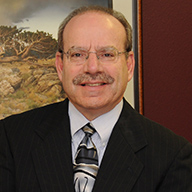 |
|
| Volume 21 Number 5 May 2019 | Page 12 |
Denny Petrillo
 Solomon said much about the fool. The Book of Ecclesiastes has dozens of references to him. Yet, in Ecclesiastes 10:19, Solomon sums up the life philosophy of the fool. This philosophy is described in three statements.
Solomon said much about the fool. The Book of Ecclesiastes has dozens of references to him. Yet, in Ecclesiastes 10:19, Solomon sums up the life philosophy of the fool. This philosophy is described in three statements.
Have we learned anything? We live in a world that has these same warped views. It is a world that embraces the warped philosophy of the “good life.” Money, food and alcohol continue to plague us when not viewed correctly.![]()
Dean Kelly
 “For godly sorrow produces repentance leading to salvation, not to be regretted; but the sorrow of the world produces death” (2 Corinthians 7:10). The differences in Peter and Judas are many. Peter was an honest and a just man who stumbled sometimes, and his acts of denial of Jesus were without excuse. On the other hand, Judas is described as a thief, and his life ultimately came to be guided by avarice and not by faith. Hence, he betrayed Jesus.
“For godly sorrow produces repentance leading to salvation, not to be regretted; but the sorrow of the world produces death” (2 Corinthians 7:10). The differences in Peter and Judas are many. Peter was an honest and a just man who stumbled sometimes, and his acts of denial of Jesus were without excuse. On the other hand, Judas is described as a thief, and his life ultimately came to be guided by avarice and not by faith. Hence, he betrayed Jesus.
One difference, however, is their reaction to their betrayals of Jesus (Peter by his words, Judas by his actions). When Peter realized what he had done, he went out and wept bitterly. However, Peter proceeded with a determination to do better and became a solid, mature leader among God’s people. Peter experienced “godly sorrow,” which brought about repentance.
Judas, on the other hand, experienced “the sorrow of the world.” When he realized the effect of his actions (apparently, he did not think that they would really hurt Jesus), he returned the money and then went out and hanged himself. He was sorrowful about the results of his actions, but he did not really attempt to change his life. He simply took his own life. Could Judas have been forgiven? The answer is yes. However, it would have taken a godly sorrow that brought about a change of heart, and ultimately a change in life. Judas was not willing to take that step, so he took the “easy” way out.
When we face the mistakes and sin in our lives, do we experience godly sorrow that produces true repentance or worldly sorrow that does not bring about a change of heart and life? True repentance has to involve both of those. It is not repentance if we don’t act to change our actions, but it is also not repentance if we change actions with no true change of heart.
In the 51st Psalm, David, following his realization of the depth of his sin in the matter of Bathsheba, painted a very clear picture of what godly sorrow means and what it should accomplish in our lives. David recognized his need to be cleansed. “Have mercy upon me, O God, According to Your lovingkindness; According to the multitude of Your tender mercies, Blot out my transgressions. Wash me thoroughly from my iniquity, And cleanse me from my sin” (Psalm 51:1-2).
David recognized that sin was an offense against God, and He had the right to judge him. “For I acknowledge my transgressions, And my sin is always before me. Against You, You only, have I sinned, And done this evil in Your sight—That You may be found just when You speak, And blameless when You judge” (Psalm 51:3-4). David recognized his sinfulness and that God wanted truth within him. “Behold, I was brought forth in iniquity, And in sin my mother conceived me. Behold, You desire truth in the inward parts, And in the hidden part You will make me to know wisdom” (Psalm 51:5-6). David recognized that he needed to be washed and restored. “Purge me with hyssop, and I shall be clean; Wash me, and I shall be whiter than snow. Make me hear joy and gladness, That the bones You have broken may rejoice. Hide Your face from my sins, And blot out all my iniquities” (Psalm 51:7-9). David recognized that he needed a clean heart and steadfast spirit. “Create in me a clean heart, O God, And renew a steadfast spirit within me. Do not cast me away from Your presence, And do not take Your Holy Spirit from me” (Psalm 51:10-11).
David determined to teach others God’s way. “Restore to me the joy of Your salvation, And uphold me by Your generous Spirit. Then I will teach transgressors Your ways, And sinners shall be converted to You” (Psalm 51:12-13). David promised a broken and contrite spirit that praised God. “Deliver me from the guilt of bloodshed, O God, The God of my salvation, And my tongue shall sing aloud of Your righteousness. O Lord, open my lips, And my mouth shall show forth Your praise. For You do not desire sacrifice, or else I would give it; You do not delight in burnt offering. The sacrifices of God are a broken spirit, A broken and a contrite heart—These, O God, You will not despise” (Psalm 51:14-17). David promised to lead Jerusalem in righteousness. “Do good in Your good pleasure to Zion; Build the walls of Jerusalem. Then You shall be pleased with the sacrifices of righteousness, With burnt offering and whole burnt offering; Then they shall offer bulls on Your altar” (Psalm 51:18-19).
David made it clear that sacrifice is unacceptable if the heart is not right. That did not minimize the importance of the sacrifices. Instead, he was determined to act, live and lead in such a way as to make the sacrifices that he and his people offered acceptable to God. We need to maintain a submissive, penitent heart. If we truly have that spirit within us, we will serve the Lord, submit to His will and show others His way. I wish for each one peace and happiness and a minimum of sorrow in life. I also hope for each reader the determination and the dedication in serving God, and hearts that can be touched with the godly sorrow that causes repentance and results in eternal life!![]()